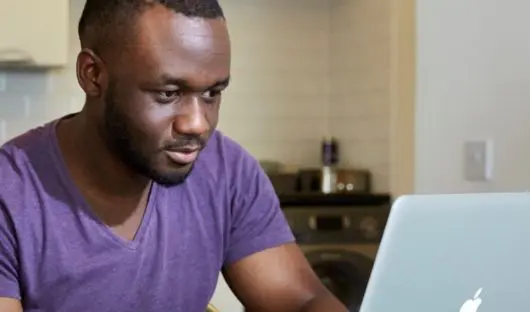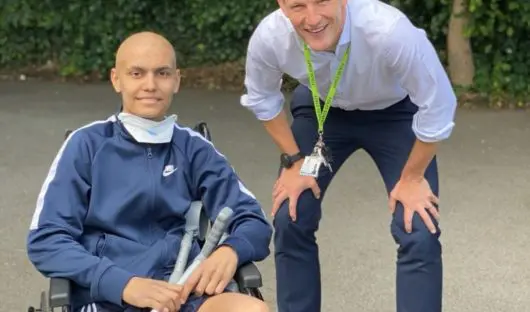Dealing with debt if you have cancer
Dealing with debt is always hard. But it can be even more stressful if you or your child has cancer. It is important to understand your debt and deal with it as soon as you can. Luckily help is available. Here are some tips to help you get started.
Understanding your debt
It is important to know how much you owe and who to. You can do this by making a list or spreadsheet. You might want to talk to a debt advisor over the phone, online, or in-person. The Money Helper website has a debt advisor locator tool here.
Once you know what you owe you can start to plan. Some debts should be paid more quickly than others. For example, court papers. Other priority debts might include heating, child maintenance, council tax and mortgage payments.
More information on how to prioritise debts is available here.
Credit card debt
Credit card debts are not normally a priority debt. But paying them back earlier could save you money.
If you can afford to, try paying off more than the minimum amount each month. Even paying a small amount extra can make a big difference.
If you have savings, use these to pay off credit cards. You will normally get less interest on savings than you pay on your credit card.
If you have other debts, or are worried you will miss repayments, you should talk to a debt advisor before making any changes.
Personal loans
Personal loans are sometimes called ‘unsecured loans’.
You might be able to save money by moving or paying off this type of loan. If you have savings, it usually makes sense to use them to pay off a personal loan. Just check the early repayment charges are not too high.
If you cannot repay a loan in full, there are some options for reducing personal loans:
- Switching to a low-interest or shorter-term deal
- Paying off loans with interest-free or low-interest balance transfer credit card deals
- Making extra payments
Money Helper offers advice on all these options, including a loan calculator.
Secured loans
Secured loans are a priority debt. They are borrowed against an asset like your house or car. Interest rates for secured loans tend to be lower than personal loans. But they can be more risky because your asset could be repossessed.
Secured loans include mortgages and some consolidation loans.
If you are finding it hard to pay secure loans you should contact your lender first. You might be able to defer or reduce payments for a while.
You might also be able to get benefits to help you with secure loans. More information on this is available here.
Housing costs
If you cannot pay rent, the first thing you should do is talk to your landlord or housing association. You can then plan together to help stop you falling further behind.
Housing Benefit can help you pay rent. You might also be able to claim extra money if Housing Benefit does not cover all your rent. This is called a Discretionary Housing Payment and you should apply via your local council.
If you are being threatened with eviction, Shelter has advice here.
Bills
You may find your bills go up during cancer treatment. This might be because you have the heating on more or are doing more washing.
If you are finding it hard to pay gas and electricity bills, contact your supplier. Energy companies have a legal obligation to offer advice support. They might be able to offer your payment breaks or a hardship grant. If you are worried about topping up a prepayment meter, Citizens Advice has a guide on what to do here.
If you fall behind with council tax payments contact your local council as soon as you can. They might be able to offer you a new payment plan. You might also be able to get a reduction in council tax.
Some bills might not be a priority debt but still be vital to you. For example, you need your mobile to manage appointments and stay in touch with friends and family. Talk to your provider. They might be able to help you by moving your payment date or switching you to a different tariff. Some providers offer low-cost plans if you get certain benefits.
Student Loans
You might be able to cancel your student loan if you become permanently unfit for work and get certain benefits. These include:
- Personal Independence Payments
- Disability Living Allowance
- Industrial Injuries Benefit
- Severe Disablement Allowance
You will need to provide proof, for example a letter from the benefits agency, and your Customer Reference Number.
Can my debt be written off if I have cancer?
There are times when you might be able to get your debt written off. Industry guidelines say creditors should do this if you are:
- Very unwell
- Unlikely to recover
- Have no way of repaying the debt
You will need to apply in writing and provide proof of your medical condition. You will also have to prove you cannot pay. The Mental Health & Money Advice website has a sample letter on its website here.
Telling your lender or creditor you have cancer
You do not have to tell your lender or creditor you have cancer. But letting them know what is going on might mean you get help to manage your debts.
Before contacting them, make a note of what you owe, how much you can afford to repay and what you would like them to do. You should also have copies of any proof you might need. This might include benefits or medical information.
Creating a debt management plan
A debt management plan (DMP) is an agreement between you and your creditors to pay off all your debts. It is usually only used when:
- You can only afford to pay a small amount each month
- You have debt problems but will be able to make repayments in a few months
You can arrange a plan yourself or through a licensed debt management company. If you choose to go through a company, they will normally charge you a fee. They will then contact your creditors and ask them to agree to a DMP. If they do, the company will share your money out.
Creditors do not have to agree to a DMP. They can also still ask you to pay your full debt later and take action to recover their money even if you keep up your payments.
The Step Change Debt Charity offers a fee-free DMP. Find out more here.
You should speak to a debt advisor to work out whether a DMP is right for you before making any decisions.
Credit card insurance
If you have a credit card, personal loan or store card, you may have payment protection insurance (PPI). This helps cover monthly repayments if you are signed off from work. It pays out for up to 12 or 24 months depending on your policy.
You should try to make the claim quickly as there can be a long wait.
If you are refused, you can contact a claims management company to seek compensation. However, they will take a cut of whatever you are awarded.
Who to talk to about your debt
Our free Welfare Advice Service can offer you advice about your money and rights. Contact us by calling 0800 915 4439 or email Welfare.Advice@younglivesvscancer.org.uk. The Welfare Advice Service is open Tuesday, Thursday and Friday from 10am to 4pm.
A debt advisor can offer you free advice and help you get out of debt faster. The Money Helper website has a debt advisor locator to help you find phone, online and face-to-face help. It also has an online debt support community on Facebook which you can join here.
The Citizens Advice Extra Help Unit can help with bill disputes or other problems paying your bill. To get a referral:
- In England and Wales, call the Citizens Advice consumer helpline free on 0808 223 1133 Monday to Friday 9am to 5pm. To contact a Welsh-speaking adviser call: 0808 223 1144.
- In Scotland, use Advice Direct Scotland’s service on the scot website or call them free on 0808 196 8660.
- In Northern Ireland, contact NI Energy Advice on the NI Housing Executive website or call them for free on 0800 111 4455.
Other useful websites include:
- Citizens Advice – work out which debts to pay first
- StepChange Debt Charity – debt advice for people affected by cancer in partnership with Macmillan Cancer Support
- National Debtline – free advice to help you get out of debt
- Christians Against Poverty (CAP) – free debt support and money management courses for anyone regardless of faith


